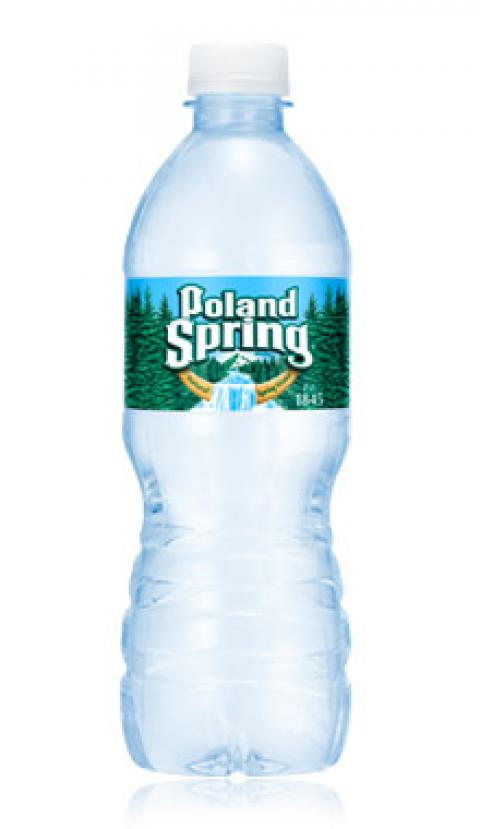Tea Party Republican Governor Paul LePage of Maine helped Nestlé secure a contract that gives Poland Springs, a Nestlé subsidiary, permission to take the small town of Fryeburg’s groundwater for the next 25 years for their own profit. The deal could stretch to 45 years due to built-in extensions.
Today that deal was upheld by Maine’s Supreme Judicial Court, essentially cutting off activists’ last attempts to scuttle the deal.
There has never been a contract that ties up local water resources for such a long period of time in American history. Water activists worry that this could set a precedent for future corporate attempts to take water from rural towns for extended periods of time.
Nickie Sekera, the co-founder of Community Water Justice, talked to US Uncut today about the water deal.
“Contracts of this length come with an unprecedented concern in our current times,” she said. “With the changes we are witnessing in our climate, increasing global water insecurity, and industry polluting freshwater resources with little accountability… corporate control over drinking water resources for profit aligns us on a collision course with local water security.”
According to Sekera, the town’s water supplier had been able to keep Fryeburg’s government largely out of the loop during negotiations with Nestlé.
“Our local municipal water supplier for Fryeburg, Maine, is run by a private company,” Sekera said. “So it’s not run by a municipality… they can engage in contracts with corporations such as Nestlé much easier. It benefits their shareholders and Nestlé because it’s not publicly run and managed, which helps them get what they want.”
Maine has what’s called “absolute dominion” laws with respect to groundwater, which, as Sekera put it, “basically equates to whoever has the biggest straw wins. So you own the property, you own all the water mining rights under your property. And it doesn’t protect us from global water predators such as Nestlé.”
The law is essentially an antiquated relic, because it does not account for underwater reservoirs being connected with each other or to surface water.
Nestlé is infamous for taking water from US communities for billions of dollars in profit and then dumping the environmental costs onto the rest of society. Environmental scientist Vandana Shiva has called its practices “the most pervasive, most severe, and most invisible dimension of the ecological devastation of the earth.”
Nestlé has previously attempted to pass similar long-term contracts in two other states, but they failed both times. “People realized what a foolish deal this was,” Sekera said. “But because they had their tentacles already so deep into our community, it was pretty ripe for this to happen.”
Before Nestlé could move forward, the water contract had to be approved by Maine’s Public Utilities Commission. All three of the commissioners deciding the case were exposed by a Portland Press Herald article as having direct ties to Nestlé.
“Every commissioner on the PUC has been touched by Nestlé,” said Fryeburg resident Scot Montgomery, who manages a local restaurant kitchen. “Everyone who’s supposed to be looking out for the ratepayers, communities, and resource seems to have this other interest.”
It took a year and a half of building public pressure, but activists eventually succeeded in forcing all of the compromised commissioners to recuse themselves from the proceedings.
Sadly, it was then up to Governor LePage, an early Trump supporter labeled by Politico as “America’s Craziest Governor,” to appoint their interim replacements. LePage has recently survived efforts from Maine legislators to impeach him for “using his power to wrongly intimidate government and nonprofit organizations, and to bend them to his will.”
“Now in reality,” Sekera said, “because everything was presented and done through the eyes of conflicted commissioners, we should’ve gotten a completely new docket on this case. But that wasn’t granted, and he appointed two other alternate commissioners who were — you know — of similar leanings to the governor.”
The LePage-selected PUC predictably ruled in favor of Nestlé. Activists were hopeful that Maine’s Supreme Court would overrule the decision, but today it was upheld, effectively ending all hopes for governmental oversight to keep Nestlé in check.
Nisha Swinton, from plaintiff organization Food & Water Watch, said this decision “paves the way for a private corporation to profit from a vital public resource for decades to come.”
Sekera said the people of Fryeburg are “worn out” after such a long battle, alluding also to an Orwellian oppression inflicted on anybody who dared speak out against the deal.
“It’s very difficult to speak out publicly because it sometimes costs people their jobs,” she said. “Their ability to be employed with any connection to the town… because people in power who stand to benefit from this deal have ways of working things.”
Sekera declined to name specific examples for fear of exposing them to more attacks.
Moving forward, Sekera has become an elected Trustee of the Fryeburg Water District. She says communities need to “put our water under a public trust — that way our water resources can be secure for future generations. We need to figure out resource sharing moving forward.”
And don’t buy bottled water, obviously,” she added. “Buying bottled water directly contributes to the oppression of rural communities. And we’re seeing this replicated over and over again.”
In the coming weeks, Nestlé also plans to secure water sources in Oxbow Springs, Oregon, and Eldritch, Pennsylvannia.
Nathan Wellman is a Los Angeles-based journalist, author, and playwright. Follow him on Twitter: @LightningWOW


Spread the word